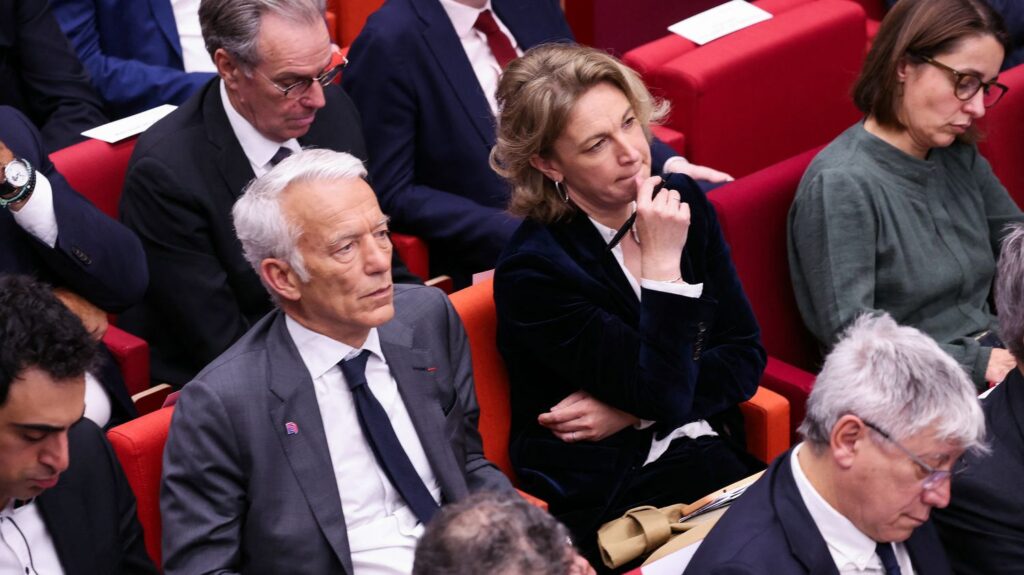A final meeting of the social partners is scheduled for June 23, in an attempt to tear off an agreement which seems less and less possible. In question, positions that are very difficult to reconcile between employers and unions.
:no_upscale()/2023/07/06/64a68815cd1a7_placeholder-36b69ec8.png)
Published
Reading time: 5min
:no_upscale()/2025/06/18/000-42dl72b-6852c1e0c77f9976390135.jpg)
A last round and then leaves? Started at the end of February, the “conclave” on pensions did not lead to an agreement on Tuesday, June 17, which was the scheduled deadline. A new meeting was announced for June 23, but the vagueness reigns over the content and participants of this final session. Wednesday, the patron of Medef, Patrick Martin, said he was on France 2 “Very reserved” concerning the presence of the employer organization at this meeting, specifying that he was going to “Consult your instances”.
Late at night from Tuesday to Wednesday, employee representatives also expressed their reluctance to this extension. “We will think if we come entirely on the 23rd, or that at the beginning, or not at all”warned Pascale Coton, negotiator of the CFTC, “angry” In front of the turn taken by consultation on Tuesday. Christelle Thieffinne, negotiator of the CFE-CGC, must also “talk about it” to his “instances, to see (if his union comes) next Monday “.
If the Minister of Labor, Astrid Panosyan-Bouvet, reiterated Wednesday morning on franceinfo her “trust” in the capacity of the social partners to find “The necessary compromises”The horizon has darkened, due to very strong differences between the different actors. Franceinfo reviews these blocking points which prevent any white smoke at the end of the “conclave”.
The way of taking into account the arduousness
Strong is one of the central subjects of this negotiation and remains a contention apple. The best taking into account of using jobs is one of the unions’ battle horses, such as the CFDT. The reform power plant pushes for anticipated departures to be possible before the legal age of 64 for employees who occupy painful positions. Opposite, Medef clearly opposed this track. The employers’ organization proposes to take into account a hardship criteria, but to obtain rights to training or retraining.
Are the positions irreconcilable? Jean-Jacques Marette, the experienced mediator of this “conclave”, put on the table the establishment of a arduousness account, which would take into account manual charge handling, painful postures and mechanical vibrations. This arduousness account could open, in some cases, to an early retirement departure. But it would be tightened than what the unions hope. Not sure that this track can convince the Medef of Patrick Martin, who considers “Of course” that the employer structure went far enough on this point: “We cannot be in a world of illusions”, he argues.
Fixing a starting age without discount
The other major tension point is the starting age without a discount, which is the age at which it is possible to retire without penalty, even if we have not contributed the number of quarters required, Or 172 for generations from 1965. Today, it takes 67 years to escape the discount. The CFTC militates for a passage from the departure age without a discount at 66, which the CFDT also defends. Medef is against this lowering, which “would cost 5.5 billion (euros) In 2035 “.” Why not, but where do we find the financial counterpart? “asked Patrick Martin on Wednesday.
For his part, Jean-Jacques Marette offers to cut the pear in two with an age of departure without a discount which would now be fixed at 66 and a half. But nothing says that this compromise allows you to find an agreement. “To cut months, it’s really not correct”reacted Pascale Coton, quoted by the media Current HR. The leader of the CFTC delegation sees it “A red cloth”.
The search for financial balance
To ensure the financial balance of the system, the mediator of the “conclave” proposed that the CSG is increased for retirees with average or higher income, reports AFP. Pensions could be sub-indexed by 0.8 points compared to inflation in 2026, and 0.4 points in 2027. “These measures do not fall under our responsibility. It is the parliament that decidesEvacue Patrick Martin, from Medef. If parliament – and that does not seem to be the case – agreed to make these measures taken, we could think about it. “
MEDEF also refuses, and “categorically”Another track mentioned, that of the increase in employer contributions. “I am surprised that some have put on the table measures which create complexity and which increase the cost of labor”Launched Patrick Martin to the CPME, another structure of the employers.
If the social partners do not agree on this question of financial balance, as on the other elements of negotiation, it is the reform of 2023 which “will apply”Tuesday warned François Bayrou.


